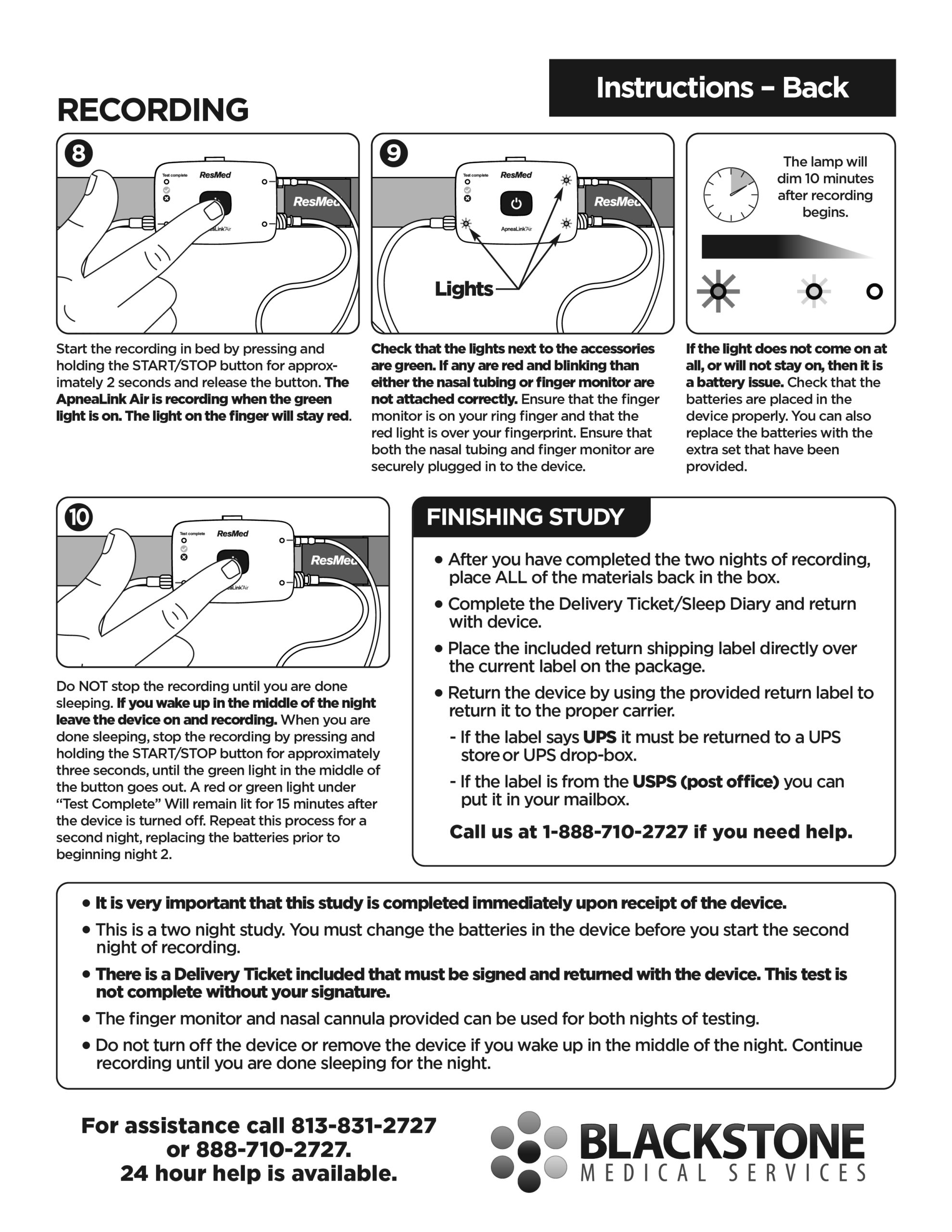Ever wondered what makes a good night's sleep so elusive? Well, buckle up because we're diving deep into the world of Blackstone Sleep Study, where science meets slumber. This groundbreaking research isn't just about counting sheep; it's about transforming how we understand and approach sleep. Whether you're a night owl or an early bird, this study has something for everyone. So, let's explore why sleep matters and how Blackstone is revolutionizing the way we think about it.
Sleep. It's one of those things that everyone needs but not everyone gets enough of. The Blackstone Sleep Study aims to change that by shedding light on the science behind rest and recovery. We're talking about more than just nodding off here; we're diving into the nitty-gritty of what happens when you close your eyes and how it impacts your overall health.
What sets this study apart? It's all about the details. From analyzing brain waves to understanding the role of environment, the Blackstone team is leaving no stone unturned in their quest for better sleep. So, if you're ready to learn how to catch those Z's like a pro, keep reading because we've got the scoop on everything you need to know.
Read also:Peachtree 23 Yard Sale 2024 Your Ultimate Guide To The Hottest Event
What is the Blackstone Sleep Study?
The Blackstone Sleep Study is more than just a catchy name; it's a comprehensive exploration of the science behind sleep. This research initiative focuses on understanding the complexities of sleep patterns and how they affect our daily lives. But let's break it down a bit, shall we? Imagine a team of scientists, researchers, and sleep enthusiasts coming together to crack the code on how we can all get better rest. That's what Blackstone is all about.
Now, you might be wondering why sleep is such a big deal. Well, it's not just about feeling refreshed in the morning. Sleep affects everything from your mood to your memory, and even your physical health. The Blackstone team is diving deep into these connections, using cutting-edge technology to map out the mysteries of the night.
Why Sleep Matters
Let's talk about why sleep is so crucial. Picture this: your body is like a machine that needs regular maintenance. Sleep is that maintenance. Without it, things start to break down. The Blackstone Sleep Study has found that lack of sleep can lead to a whole host of issues, from increased stress levels to a weakened immune system. Yikes, right?
But here's the good news: the study also highlights how quality sleep can improve your cognitive function, boost your mood, and even help with weight management. So, whether you're trying to ace that test or hit your fitness goals, better sleep could be the key to success.
Key Findings from the Study
The Blackstone Sleep Study has uncovered some fascinating insights. For starters, did you know that the average adult needs between 7 to 9 hours of sleep per night? Yeah, that's right. But it's not just about the quantity; the quality of sleep matters just as much. The study has identified several factors that contribute to a restful night's sleep, including environment, routine, and even diet.
One of the standout findings is the importance of sleep hygiene. This doesn't mean scrubbing your sheets (although that's not a bad idea), but rather creating a bedtime routine that promotes relaxation and rest. The Blackstone team recommends winding down with a good book or some light stretching to signal to your brain that it's time to sleep.
Read also:Unlock The Secrets Of Ugravebdquooslashsectuacutecopy Oslashsup3ugrave129ucircoeligoslashmacr Uacutecopyoslashplusmnugravecircugravehellip Your Ultimate Guide
Environmental Factors
Speaking of environment, the Blackstone Sleep Study has found that your bedroom setup plays a huge role in how well you sleep. Think about it: if your room is too bright, too noisy, or too warm, chances are you're not getting the rest you need. The study suggests keeping your bedroom cool, dark, and quiet to create the perfect sleep sanctuary.
And let's not forget about the importance of a comfortable mattress and pillows. Investing in quality bedding can make a world of difference in how you feel when you wake up. So, if you're still rocking that old saggy mattress, maybe it's time for an upgrade.
Understanding Sleep Cycles
Now let's get into the nitty-gritty of sleep cycles. The Blackstone Sleep Study has broken down the different stages of sleep and how they impact your overall rest. There are four main stages, each with its own unique role in the sleep process. Stage one is light sleep, where you're just drifting off. Stage two is a bit deeper, and stages three and four are where the real magic happens.
During these deeper stages, your body repairs tissues, builds bone and muscle, and strengthens your immune system. It's like a nightly spa day for your body. The Blackstone team has emphasized the importance of uninterrupted sleep to allow your body to cycle through these stages properly.
REM Sleep
And then there's REM sleep, the stage where dreams happen. REM stands for Rapid Eye Movement, and it's a crucial part of the sleep cycle. The Blackstone Sleep Study has found that REM sleep is linked to memory consolidation and emotional regulation. So, if you're having trouble remembering things or feeling extra moody, it might be because you're not getting enough REM sleep.
Interestingly, the study also suggests that REM sleep can boost creativity. Ever had a brilliant idea pop into your head after a good night's rest? That's probably because your brain was hard at work during REM.
Common Sleep Disorders
Unfortunately, not everyone gets to enjoy the benefits of a restful night's sleep. The Blackstone Sleep Study has identified several common sleep disorders that can disrupt your rest. Insomnia, sleep apnea, and restless leg syndrome are just a few of the culprits. But don't worry; the study has also provided some solutions.
For insomnia sufferers, the Blackstone team recommends establishing a consistent sleep schedule and avoiding screens before bed. Sleep apnea, on the other hand, might require a visit to the doctor for a proper diagnosis and treatment plan. And if restless leg syndrome is keeping you up at night, try incorporating some gentle stretches into your evening routine.
Stress and Sleep
Let's not forget about the impact of stress on sleep. The Blackstone Sleep Study has found that stress can wreak havoc on your ability to fall and stay asleep. But there are ways to combat this. Practicing mindfulness techniques, such as meditation or deep breathing, can help calm your mind and prepare it for sleep.
And here's a pro tip from the Blackstone team: write down your worries before bed. Sometimes just getting your thoughts out of your head and onto paper can make a big difference in how easy it is to drift off.
Tips for Better Sleep
So, what can you do to improve your sleep? The Blackstone Sleep Study has compiled a list of tips that can help you catch those Z's. First up, establish a regular sleep schedule. Going to bed and waking up at the same time every day helps regulate your body's internal clock.
Next, create a bedtime routine that promotes relaxation. Whether it's taking a warm bath, reading a book, or practicing yoga, find something that helps you unwind. And don't forget about the importance of limiting screen time before bed. The blue light emitted by phones and tablets can interfere with your body's production of melatonin, the hormone that regulates sleep.
Nutrition and Sleep
Now let's talk about nutrition. The Blackstone Sleep Study has found that what you eat can affect how well you sleep. Foods high in sugar and caffeine can disrupt your sleep, so it's best to avoid them in the evening. Instead, opt for sleep-promoting foods like turkey, bananas, and chamomile tea.
And here's a fun fact: the study suggests that eating a small snack before bed can actually help you sleep better. Just make sure it's something light and healthy, like a handful of almonds or a slice of whole-grain toast.
Technology and Sleep
Let's face it, technology is a big part of our lives. But when it comes to sleep, it can be a double-edged sword. The Blackstone Sleep Study has explored the impact of technology on sleep and offered some solutions. For starters, try using blue light filters on your devices to reduce the impact of screen time on your sleep.
There are also some great sleep tracking apps and devices out there that can help you monitor your sleep patterns. The Blackstone team recommends using these tools to gain insights into your sleep habits and make adjustments as needed. But remember, technology should enhance your sleep, not replace it.
Sleep Tracking
Speaking of sleep tracking, the Blackstone Sleep Study has found that monitoring your sleep can be a powerful tool for improvement. By tracking your sleep patterns, you can identify areas where you might be falling short and make changes accordingly. Whether you're using a smartwatch or a dedicated sleep tracker, the key is consistency.
And here's a bonus tip: keep a sleep diary. Write down how long you slept, how you felt when you woke up, and any factors that might have impacted your rest. Over time, you'll start to see patterns emerge that can help you fine-tune your sleep routine.
Conclusion
So, there you have it, folks. The Blackstone Sleep Study is shedding light on the science of sleep and offering practical solutions for better rest. From understanding sleep cycles to combating common sleep disorders, this research has something for everyone. Remember, sleep isn't just a luxury; it's a necessity for overall health and well-being.
Now it's your turn. Are you ready to take control of your sleep and start reaping the benefits? Leave a comment below and let us know what you're doing to improve your rest. And don't forget to share this article with your friends and family because good sleep is something everyone deserves. Sweet dreams!
Table of Contents
What is the Blackstone Sleep Study?


